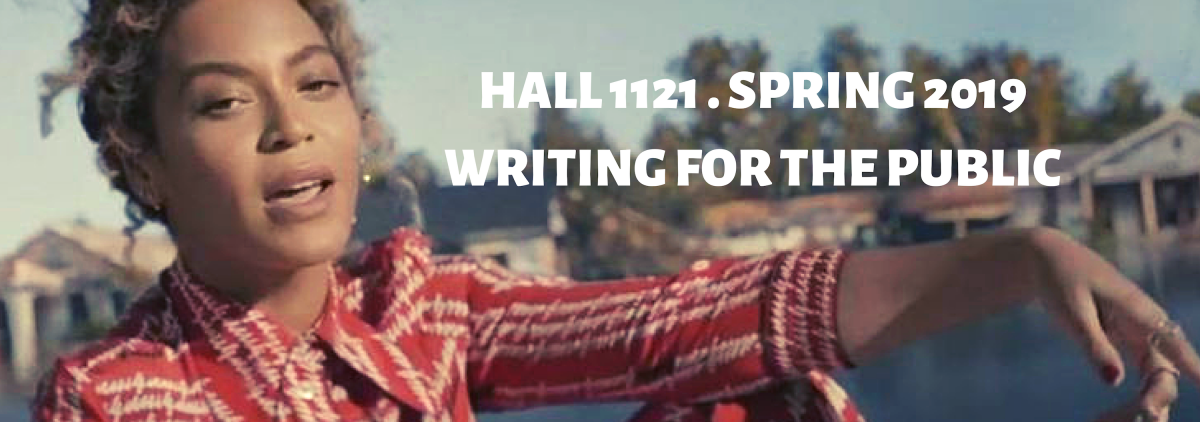David Wu
3/25/19
Prof. Hall
Eng 1121
Police brutality is one of several forms of police misconduct which involves undue violence by police officers. Police brutality against African Americans is one of the most serious social problems that affects many states across the US. This issue has gained special attention in recent years due to the numerous killings of young black people by police officers. This issue has gone so far that it has sparked various movements, such as the well known “Black Lives Matter” movement. One of the main stereotypes against the police officers across America is that they unfairly discriminate against people of color, while being more lenient towards white people.
Kendrick Lamar’s 2015 album “To Pimp a Butterfly” is a multiple Grammy award-winning masterpiece. Its mix of hip-hop, jazz, soul, funk, and other styles is a testament to the incredible range of the Compton-born rapper. This album won Kendrick four Grammy awards in 2016. More than just a great album, it features several singles that have gone on to become anthems of the modern social justice movement. Most notably, the 2015 single, “Alright” has become the anthem of a generation.
On March 2015, Kendrick Lamar made his message on the music video “Alright.” This song became the anthem of the nation’s rallying cry, especially for the Black Lives Matter movement. The troubles of police brutality victims can be heard in every breath of Lamar’s takes on “Alright” as he states with “Homie you fucked up, But if God got us then we gon’ be alright.” Pharrell Williams can be heard on the chorus, chanting “We gon’ be alright!” The music video starts by showing shots of life in a neighborhood. A young African-American man is seen lying on the ground and Kendrick begins speaking. Police and destruction flood the scene as the music starts, Kendrick and friends are seen riding in a car. As the camera rotates, we can see that the car is being carried by 4 white police officers. During the video, Kendrick flies through California, while his friends are throwing out money to everybody and dancers performing in the streets. At the end of the music video, Kendrick stands on a lamppost and a policeman shoots him down. Kendrick falls to the ground finishing his statements from the beginning of the video, but ends the video with a smile.
The video contains themes of the relationship between the black community and the police, an issue that was a serious topic at the time and still is today. The message of the video indicates that everything will be alright despite the hardships and injustices that Kendrick and in this case, black people struggle with as Americans due to institutionalized racism and prejudice in the face of protest. The anthem of the song, the symbolic importance of its chorus, and its deep references to African American history are all cautious. And it’s clear that it took much more than the beat and hook coming together for “Alright” to become “the protest song of our generation”, as Rick Rubin puts it. “That song could’ve went a thousand other ways,” Lamar states.
The song is an anthem of positivity written amongst a backdrop of civil unrest. For some context, these all took place in the last six months of 2014 (during the recording of “To Pimp a Butterfly”): The shooting death of an 18-year-old black man named Michael Brown by a 28-year-old white police officer, and the weeks of protest that followed. The death of a 43-year-old black man named Eric Garner at the hands of two white New York Police Department officers; Garner was being arrested for selling loose cigarettes at the time of his death. The shooting death of a 12-year-old black boy named Tamir Rice by two white Cleveland Police Department officers.
“Alright” is the song that moves beyond Kendrick’s personal tragedy by directing his words to be relevant to the Black Lives Matter movement. “Alright” is used as a protest song that affirms Black humanity in the context of police killing: “Wouldn’t you know, We been hurt, down before, Ni**a, when our pride was low, Looking at the world like ‘Where do we go?, Ni**a, and we hate po-po, Wanna kill us dead in the streets fo sho’/Ni**a, I am at the preacher’s door, My knees gettin’ weak, and my gun might blow, But we gon’ be alright.” These lyrics acknowledge years of collective struggle and perseverance through those struggles. Kendrick understands the killing of black men by the police to be another obstacle in the Black experience that can be overcome through spiritual strength to survive (the preacher’s door).
Despite this message of black determination by Kendrick Lamar, people found Kendrick Lamar as an artist for the Black Lives Matter movement. According to music journalist Jamilah King, Kendrick Lamar had a disputed relationship with a Black Lives Matter activist because of his statement about Ferguson. Kendrick, in an interview with King, stated: “I wish somebody would look in our neighborhood knowing that it’s already a situation, mentally, where it’s fucked up. What happened to Michael Brown should’ve never happened. Never. But when we don’t have respect for ourselves, how do we expect them to respect us? It starts from within. Don’t start with just a rally, don’t start from looting, it starts from within.
It’s no question that Lamar deserved the honors of Best Rap Album and Best Rap Song. He sings about the oppression of the African race in the modern day context, and translates these personal stories into artistic masterpieces. The music video for his famous rap song “Alright” brought Lamar on the headlines of social media because of the visual elements used in documenting the historical and ongoing struggles of African Americans. Kendrick Lamar isn’t the voice of a single rapper. He’s the voice of millions.
Music Video: https://www.youtube.com/watch?v=Z-48u_uWMHY



